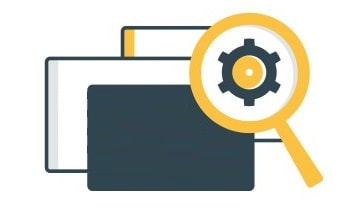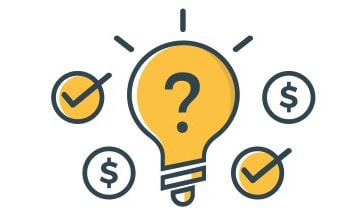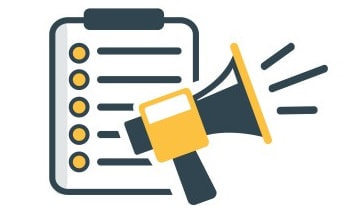How to Survive a Recession - The Definitive New Zealand Guide
Our guide explains recessions, how long they last, survival tips and details, must-know facts and frequently asked questions to help you be prepared.
Updated 8 November 2023
Summary
To help you understand what's important, our guide covers:
Related Guides:
Summary
- With New Zealand still dealing with runaway inflation and mortgage rates creeping higher, it's an uncertain time for Kiwis to try and position themselves for the future.
- News and media outlets are increasingly raising the risk of a recession on the horizon, but the impact of this phenomenon is unclear for many Kiwis.
- Should people tighten their belts or position to take advantage of the market declines, and who is most at risk from a recession?
To help you understand what's important, our guide covers:
- What is a Recession?
- How Can I Survive a Recession?
- Must-Know Facts about Surviving Recessions
- Frequently Asked Questions
Related Guides:
What is a Recession?
In the simplest definition, a recession is a period of negative economic decline. Technically, two periods of negative Gross Domestic Product (GDP) growth (broadly considered the value of all goods/services produced in New Zealand). GDP can be negative for short periods (like in early 2020 during the global pandemic) or long, drawn-out periods (like those in the 1990s or 2007-2009).
While recessions aren't the direct cause of many flow-on effects, recessions are typically correlated with decreases in business confidence leading to share market declines, increases in unemployment and decreases in housing prices.
While recessions aren't the direct cause of many flow-on effects, recessions are typically correlated with decreases in business confidence leading to share market declines, increases in unemployment and decreases in housing prices.
What causes a recession?
- Recessions can come about for any number of reasons. However, one of the main reasons recessions occur is due to the wider macroeconomy. Whether there's a shock to the global economy that flows over borders (such as the 2020-2021 pandemic) or from specific events that ripple and impact multiple markets (such as the Global Financial Crisis of 2009), the world's increasingly global interconnectedness makes it much more difficult to be independent of wider global movements.
- Alternatively, events or causes that are New Zealand-centric also play a role in influencing recessions. For example, on a price-to-income and price-to-rent basis, New Zealand has one of the most richly valued property markets worldwide. This New Zealand-centric fact could lead to a deep recession that likely wouldn't impact other markets because New Zealand is relatively more exposed than other countries.
- The cause of any expected recession is likely due to increases in interest rates led by the Reserve Bank of New Zealand (RBNZ), which is expected to increase the cost of borrowing and the amount of debt servicing payable on mortgages. An increase in debt servicing is likely to drastically decrease consumer spending in New Zealand, with many forecasting a decrease in GDP.
What are the impacts of being in a recession?
A recession can have drastic impacts on many Kiwis. Whether it's your company undergoing a restructuring, a rising cost of living or steep declines in net worth, recessions tend to have a flow-on effect that puts pressure on every household's financial position. Generally:
This impact, coupled with the uncertainty of the length of the recession, can cause anxiety for many Kiwis.
- Incomes will suffer
- Expenses will rise
- Savings will get reduced, and
- Investment/asset balances will start to fall.
This impact, coupled with the uncertainty of the length of the recession, can cause anxiety for many Kiwis.
How Can I Survive a Recession?
A recession can be a stressful and difficult time for many people. However, there are things that Kiwis can do to weather the storm and come out ahead.
This section is divided into four main sections on how you can best survive a recession:
This section is divided into four main sections on how you can best survive a recession:
- Increase your income
- Decrease your expenses
- Increase your savings rate
- Improve your investment strategy
1. Increase your income
One of the best ways to survive a recession is to make sure that you have enough money coming in. The best advice in recessionary times will always be to ensure you're doing everything possible to maintain your main source of income. During tough economic times, it's common for companies to go through multiple layoffs or restructurings that can result in reductions in base salaries or lead to redundancies. The most important thing Kiwis can do is to continue adding value to employers and maintaining employment. However, there are a few other ways to increase your income above and beyond your main job:
a) Start your own side-business.
While this can be a riskier proposition during a recession, many of the most significant startups have been founded during recessions (think Airbnb, Uber and Whatsapp). If you've got a good idea and are willing to work hard, starting your own business can be a good way to continue learning and make extra money. Our guide to starting a business has ideas and considerations.
b) Pick up a second job.
Picking up a second job can be difficult to balance with your main job and other commitments (such as family or a relationship). Still, it can drastically improve your financial situation and help you make ends meet during tough times. Our guide to picking up part-time jobs has more details.
c) Focus on side hustles.
Another offshoot of a formal second job is considering taking on freelance work through platforms such as Uber or Fiverr. This method can be great for earning extra money without committing to a full-time job. Additionally, many businesses will be looking for temporary workers to come in and fill temporary vacancies, given the pressure to reduce full-time employees. Our comprehensive guide to side hustles has more details.
a) Start your own side-business.
While this can be a riskier proposition during a recession, many of the most significant startups have been founded during recessions (think Airbnb, Uber and Whatsapp). If you've got a good idea and are willing to work hard, starting your own business can be a good way to continue learning and make extra money. Our guide to starting a business has ideas and considerations.
b) Pick up a second job.
Picking up a second job can be difficult to balance with your main job and other commitments (such as family or a relationship). Still, it can drastically improve your financial situation and help you make ends meet during tough times. Our guide to picking up part-time jobs has more details.
c) Focus on side hustles.
Another offshoot of a formal second job is considering taking on freelance work through platforms such as Uber or Fiverr. This method can be great for earning extra money without committing to a full-time job. Additionally, many businesses will be looking for temporary workers to come in and fill temporary vacancies, given the pressure to reduce full-time employees. Our comprehensive guide to side hustles has more details.
2. Decrease your expenses
Another key way to survive a recession is to decrease your expenses. Generally, this is much easier if you have a lot of discretionary spending that hasn’t been reviewed in a while, but there’s only so much “fat to cut” from many Kiwis’ budgets.
Whilst cutting down can be difficult, cutting back on unnecessary spending is one of the most certain ways to improve your financial position as you know exactly what you spend, so these cost savings flow directly into your savings.
One of the first things Kiwis should do to decrease expenses is draft a monthly budget. Drafting a budget can help you track your spending and ensure you're only spending money on the things you've identified as essential or necessary in your life. Once you've identified a clear budget for the month, try as hard as possible to stick to it.
Another tip is to consider cutting back on luxuries or non-essential items. Again, this can be difficult as humans are used to adjusting to a certain baseline level of comfort. If these non-essential purchases (like travel, new cars or luxury clothes) become consistent habits, it can be hard to stop purchasing them. However, in the long run, removing these discretionary items can help make ends meet during tough economic times.
Our guides to budgetting apps, budget planning tools and cutting back on household bills have further information.
Whilst cutting down can be difficult, cutting back on unnecessary spending is one of the most certain ways to improve your financial position as you know exactly what you spend, so these cost savings flow directly into your savings.
One of the first things Kiwis should do to decrease expenses is draft a monthly budget. Drafting a budget can help you track your spending and ensure you're only spending money on the things you've identified as essential or necessary in your life. Once you've identified a clear budget for the month, try as hard as possible to stick to it.
Another tip is to consider cutting back on luxuries or non-essential items. Again, this can be difficult as humans are used to adjusting to a certain baseline level of comfort. If these non-essential purchases (like travel, new cars or luxury clothes) become consistent habits, it can be hard to stop purchasing them. However, in the long run, removing these discretionary items can help make ends meet during tough economic times.
Our guides to budgetting apps, budget planning tools and cutting back on household bills have further information.
3. Increase your savings rate
Another key way of surviving a recession is to make sure you're saving as much money as possible. Increasing your savings rate can be quite difficult with factors like inflation, but putting away as much money as you can each month is important.
One way to implement this is to set up a budget and ensure that you automatically transfer a fixed sum of money into your savings account each month. This budget can help you make sure that you are always saving regardless of what is happening with your income.
Another way to save more money automatically without thinking about it is to take advantage of your employer's KiwiSaver scheme. Some employers offer more than the minimum 3% matching amounts into retirement accounts, so take full advantage of these schemes. Contributing to KiwiSaver schemes can be a good way to increase your savings without thinking about it or putting any extra effort in. However, note that you won't be able to access any money you contribute to KiwiSaver until you hit retirement age.
The last thing you should do to ensure you have a proper savings buffer is to create an emergency fund. It's recommended to have c. 3 - 6 months of living expenses in an easily accessible account (either a checking or savings account) in case anything happens (such as losing your job, running into unexpected expenses or needing to cover increased mortgage payments). An emergency fund can help weather a recession by providing financial stability and peace of mind that if anything happens, you will be prepared for it.
One way to implement this is to set up a budget and ensure that you automatically transfer a fixed sum of money into your savings account each month. This budget can help you make sure that you are always saving regardless of what is happening with your income.
Another way to save more money automatically without thinking about it is to take advantage of your employer's KiwiSaver scheme. Some employers offer more than the minimum 3% matching amounts into retirement accounts, so take full advantage of these schemes. Contributing to KiwiSaver schemes can be a good way to increase your savings without thinking about it or putting any extra effort in. However, note that you won't be able to access any money you contribute to KiwiSaver until you hit retirement age.
The last thing you should do to ensure you have a proper savings buffer is to create an emergency fund. It's recommended to have c. 3 - 6 months of living expenses in an easily accessible account (either a checking or savings account) in case anything happens (such as losing your job, running into unexpected expenses or needing to cover increased mortgage payments). An emergency fund can help weather a recession by providing financial stability and peace of mind that if anything happens, you will be prepared for it.
4. Improve your investment strategy
To actively increase your investments during a recession, you must be careful which asset classes and sectors you choose. Generally, recessions can be difficult to invest in, but there are still opportunities if you are willing to take on some risk. Our guide to recession-proof sectors and asset classes provides more background to this situation.
A recessionary environment is one of the best times to reflect on your assets/investment portfolio and make sure that you're comfortable with the relative risk of holding each asset. One way to make sure that you're making wise investments is to diversify your portfolio. Diversification in this context means investing in various asset classes, such as shares, funds, cash, term deposits and real estate. In addition, diversifying can help protect you from losses in any one particular area. Remember - what every you invest in, make sure you understand it; learn about the different investment options available and choosing the ones that are right for you.
For Kiwis that are more risk-seeking or are younger and have more time in the market to weather the volatility, investing during a recession can be a great way to take advantage of lower share prices and build generational wealth.
For example, if you don't have any short-term cash needs, have a stable, secure job, can control your emotions, and can buy when others are panicking/selling, you'll be much better off in the long term. Just because a share price is falling isn't a good time to buy. Most of the time, a share price will drop after you've purchased it. This scenario can mean that "buying the dip" will only make sense for investors with a long-term time horizon.
Another investment class to consider is alternative investments. In inflationary times, alternative assets such as real estate, private equity, commodities or listed infrastructure will typically outperform due to the nature of their physical assets and their ability to raise prices in line with inflation continually. However, note that alternative assets are usually more illiquid, varied and harder to invest in than traditionally listed equities.
A recessionary environment is one of the best times to reflect on your assets/investment portfolio and make sure that you're comfortable with the relative risk of holding each asset. One way to make sure that you're making wise investments is to diversify your portfolio. Diversification in this context means investing in various asset classes, such as shares, funds, cash, term deposits and real estate. In addition, diversifying can help protect you from losses in any one particular area. Remember - what every you invest in, make sure you understand it; learn about the different investment options available and choosing the ones that are right for you.
For Kiwis that are more risk-seeking or are younger and have more time in the market to weather the volatility, investing during a recession can be a great way to take advantage of lower share prices and build generational wealth.
For example, if you don't have any short-term cash needs, have a stable, secure job, can control your emotions, and can buy when others are panicking/selling, you'll be much better off in the long term. Just because a share price is falling isn't a good time to buy. Most of the time, a share price will drop after you've purchased it. This scenario can mean that "buying the dip" will only make sense for investors with a long-term time horizon.
Another investment class to consider is alternative investments. In inflationary times, alternative assets such as real estate, private equity, commodities or listed infrastructure will typically outperform due to the nature of their physical assets and their ability to raise prices in line with inflation continually. However, note that alternative assets are usually more illiquid, varied and harder to invest in than traditionally listed equities.
Must-Know Facts about Surviving Recessions
1. Make sure to consider the mental toll of recessions just as much as the financial toll.
- While this guide has heavily focused on the tangible, financial things you can do to weather a recession, it's important not to overlook the non-financial aspects of a recession.
- Generally, recessions are extremely stressful and can put a strain on many Kiwis' mental states as well as their finances.
- Recessionary periods can be tough, but keeping a positive attitude will help you get through this period stronger than before.
2. Focus on building intangible skills to set yourself apart from the recessionary period.
- It's also important to continue learning and building your brand/skillset. Learning new skills or taking courses can help you be more prepared in a recession and find new opportunities.
- In addition, building your knowledge helps set yourself apart from other competitors when the number of new jobs on the market is likely to be much lower.
3. Recessionary periods can last for months or even years.
- Nobody can say for certain how long a recession will last. However, it's best to prepare for the worst.
- Making quality, defensive changes to your finances and mindset can help you continue making the right decisions during these tough times.
Frequently Asked Questions
What should I do if I think we’re headed for a Recession?
While New Zealand is not in a recession as at February 2023, given the rapid increases in the official cash rate by the Reserve Bank of New Zealand, experts have flagged that it’s likely New Zealand is headed for a recession in 2023. If you think we're headed for a recession, taking steps to protect yourself financially is important. This positioning can include things like creating an emergency fund, paying down debt, and investing in yourself.
Can a recession be a positive thing?
While a recession can be difficult for many people, there are some silver linings. For example, a recession can be a great time to reflect and consider your career and financial situation while building good financial habits that will continue to stick after the recession has passed.
It's important to remember that a recession will not last forever. While the timing of recessions is uncertain, all economies go through cycles of boom and bust. Knowing this situation won't be around forever can give Kiwis the hope and clarity to make the best out of the situation and continue to head towards their financial goals.
It's important to remember that a recession will not last forever. While the timing of recessions is uncertain, all economies go through cycles of boom and bust. Knowing this situation won't be around forever can give Kiwis the hope and clarity to make the best out of the situation and continue to head towards their financial goals.
What should I do with my money if we're in a recession?
During a recession, it's important to be mindful of your savings and spending. Echoing the thoughts above, the best thing you can do with your money during a recession is to:
- Save more: Try putting away as much cash as you can each month to cushion tough times.
- Invest better: If you have money invested, now is a great time to review and consider your portfolio allocation and strategically invest in areas that are either more defensive or can weather recessions better, such as alternative assets.
- Pay off high-interest debt: With rises in interest rates, most revolving credit facilities (such as credit cards or car financing) will come with increasingly higher monthly payments. So one of the top things you can do in a recession is to use any extra cash you get (through your main job or side hustles) to pay down high-interest debt.
How much should I have in my emergency fund?
It depends on many different factors. Every Kiwi needs some money in the bank in case anything goes wrong and it's generally accepted that having anywhere from 3 - 6 months of living expenses is the bare minimum amount of money you need to set aside. This is because emergency funds are set up in case you lose your job or have any unexpected expenses. The amount you keep aside will also depend on how liquid your other assets are (for example, how easy you're able to sell shares to cover short-term expenses), how comfortable you are in your job and how likely you think you'll be able to find another job if you get made redundant. Our guide to emergency funds has more details.
Should I hold credit card debt in a recession?
It depends; during recessionary periods Kiwis usually borrow more to cover living costs, which can lead to higher interest amounts being paid, putting them in a worse financial position. Additionally, during inflationary periods when the Reserve Bank of New Zealand has to raise the official cash rate, interest rates on credit cards tend to increase, putting further strain on those with large debt balances. If you're unable to pay a credit card balance off every month, you're likely paying 20%+ p.a. on the debt and that's a waste of money when things are already tough.
What's the difference between a recession and a depression?
Both recessions and depressions significantly impact Kiwi businesses, governments and consumers. A recession is a period of decreased economic activity, typically lasting six months or longer. Depressions are a more severe economic downturn that can last for years. During a recession, businesses may experience reduced demand leading to lower profits. During a depression, it's common for businesses to fail and lay off their workers, leading to rises in unemployment.
Should I save more or invest more in a recession?
This decision will depend on your circumstances. If you have high-interest debt, it may make sense to focus on paying that off first. If you have a steady income and can save regularly, you should focus on building your emergency fund. And if you have extra money and are comfortable taking on more risk, investing in shares and funds can be a good option. Ultimately, your best decision will depend on your financial situation and goals.
Is a recession the time to invest or sit in cash?
This decision will again depend on your circumstances. For those with a relatively stable income, who don't have any debt and have already started an emergency fund, you'll be much better placed to invest and take advantage of the market downturn. However, if you're more risk averse, are on a fixed-term contract and don't have any cash set aside in case anything goes wrong, it might make sense to sit in cash and build up your reserves.
Should I save more or invest more in a recession?
Whether you should save or invest is difficult and depends on your circumstances. However, some things you may want to consider are:
Ultimately, the decision to save or invest more during a recession will come down to your circumstances. So be sure to consider all factors before making a decision.
- Your emergency fund: Make sure you have enough saved in case you lose your job or have unexpected expenses.
- Your debt: If you have high-interest debt, such as credit cards, it may make sense to focus on paying that off first.
- Your goals: Investing can help you reach your long-term financial goals, but it does come with risks. You can save more during a recession if you're more risk-averse. In contrast, you may want to invest more if you're more comfortable with risk.
Ultimately, the decision to save or invest more during a recession will come down to your circumstances. So be sure to consider all factors before making a decision.
How can I tell if we’re in a Recession?
Aside from the technical metrics of two consecutive negative quarters of GDP growth, rising unemployment, decreasing business confidence and rising inflation are all tell-tale signs of a recession looming.
Related Savings Guides and Resources:
- Emergency Funds
- Budgeting Apps
- Budget Planner
- The Best Recession-Proof Sectors and Asset Classes to Invest in During a Downturn
- Investing Apps and Platforms
- Savings Accounts and Term Deposits
- Barefoot Investor for New Zealand
- Achieving Financial Independence, Faster
- Single Parenting and Money
- Tips for Families on a Single Income
- 20 Ways to Save LOTS on Household Bills
- Side Hustle Ideas
- Lending Money to Friends & Family
- 20 Things to Stop Buying to Have More Money
- 20 Indicators You're Doing Well Financially
- 20 Must-Know Money Lessons (Learned From Experience)
- 20 Money Habits that Keep You Poor





